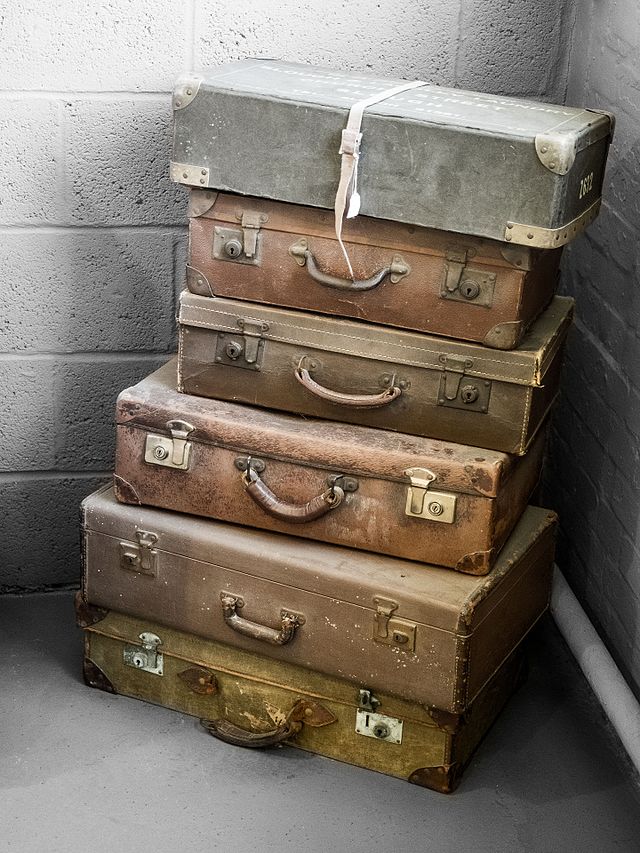Lebanon’s weather ranges from hot to mild and comfortable with the occasional chilly day in winter. Generally though, in June and July you can expect temperatures in the 30s (degrees Celsius) during the day, and dropping to 20 degrees or so at night. It's very unlikely to rain during this period. On either side of that, around April-May and September-October, it’s quite comfortable with temperatures around the early 20s during the day (although it's still possible to have some very hot days). Winter temperatures usually don't drop below 10°C, and beautiful sunny days are still quite normal. That being said however, it can rain and be very overcast during winter.
Clothing
Lebanon ranges from hot and dry in summer, to mild and occasionally wet in winter. Most people travelling to Lebanon in the summer months of June, July, August and even September will want to bring shorts, t-shirts and even their bathers.
Meanwhile in winter, a warm jumper or light jacket will normally suffice, unless you’re extremely sensitive to even mild weather. Unless of course you’re planning on going to the higher mountains or skiing of course.
One perception of Lebanon is that it’s in the Middle East so you’ll need to bring conservative clothes, but nothing could be further from the truth. The fact is there will be many locals wearing a lot less than you are. Likewise, you will of course see women in headscarves and more conservative dress. In this respect Lebanon is a relatively open country where people are mostly free to feel comfortable wearing what they wish and reflecting their individual beliefs. Of course if you want to enter a mosque or Orthodox church, women should cover their heads and men should wear long trousers.
So in general, just wear whatever is appropriate for the season, but if you’re female, have a scarf in your suitcase just in case.
Footwear
As Lebanon is a very small and densely populated country, there really isn’t much in the way of rural areas and normal comfortable shoes can be worn anywhere. In winter however it can rain quite a lot and many streets don’t have great drainage meaning they can become quite wet and the normally dusty streets turn muddy, so best to bring good wet weather shoes if travelling between November and March.
There will be a fair amount of walking throughout any of our tours, but mostly on flat, paved surfaces, so as long as you’re comfortable you don’t need to worry about anything specific. There are a few times when you might be walking over dusty, sandy or rocky ground but nothing that can’t be done in your normal trainers, flip flops or sandals.
Luggage
Lebanon is small and doesn’t require anything specific, so on the one hand you can bring your large suitcases as you will never be travelling far with them. On the other hand you probably won’t need as much as other destinations.
On our tours, you’ll be transported between your accommodations by buses or cars, depending on group size, with plenty of space for luggage, so you can really bring whatever kind of bags you like. You won’t need to carry your own luggage very far at a time – just cars to lobby to room and back, and it doesn’t need to be compact to fit into small areas. Hard suitcases, soft suitcases, wheels, no wheels, backpack, whatever you like is fine.
Medicines
Pharmacies are aplenty in Beirut, Tripoli, Saida, Tyre and most parts of Lebanon. However with the recent economic crisis, some medicines are becoming harder to find and their prices are increasing exponentially. While you’ll still easily find essentials such as paracetamol and Imodium, other more specific medications are becoming rarer. As such, it’s definitely a good idea to make sure you’re stocked up on anything like that that you may need and if you have any specific medications that you regularly need you should try and bring them with you if possible.
Passport copies
If you’re wanting to travel to the very southern part of Lebanon, you’ll need to get a permit, which requires photocopies of your passport. The intelligence directorate where you get this permit does not have photocopiers available for your use, so best to just throw a few in your luggage beforehand.
Cash
Even before the current economic crisis, Lebanon was still primarily a cash-based society. Most small cafes and restaurants wouldn’t have card facilities, especially when travelling outside of Beirut.
Now that the economy of Lebanon is in turmoil, cash isn’t just the best option, it’s essential. Make sure you take enough cash in to Lebanon for your trip as ATMs regularly do not have money in them and if they do you’ll be getting your Lebanese Pounds at the official rate, meaning that lovely meal that should be $5 at the black market rate, turns into a $50 meal.
US Dollars get the best rate of exchange, followed by Euros. Other major currencies such as British Pounds, Australian Dollars, Swiss Francs and regional currencies such as Turkish Lira, Saudi Rials, Emirati Dirhams are accepted, although not everywhere and the rate you’re getting won’t be relatively as good.
To find out more about this, read our Exchanging money in Lebanon and Syria blog , or our Money page .
Power bank
Lebanon has an issue with electricity, however almost all hotels have generators. If you happen to be staying at someone’s house, it’s best to bring a power bank as backup just in case that critical moment you need to charge your phone is during a power outage.


